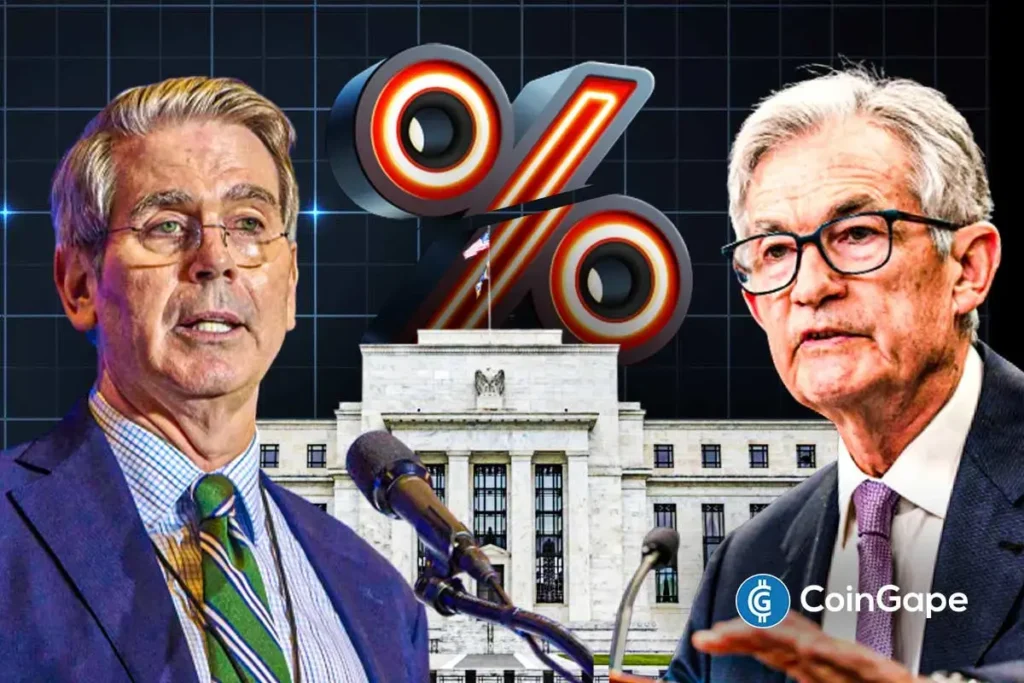Criticism of Powell’s Fed Rate Approach: A Closer Look at Treasury Secretary Scott Bessent’s Concerns
U.S. Treasury Secretary Scott Bessent has recently expressed sharp criticism towards Federal Reserve Chairman Jerome Powell concerning the latter’s reluctance to signal a potential easing of interest rates in the near future. Bessent argues that the Federal Reserve should consider cutting rates by up to 150 basis points (bps) by the end of the year. His assertions come in light of concerns regarding the current state of the economy and the impact this rate policy could have on not only traditional markets but also the evolving cryptocurrency sector.
Bessent’s Call for Action
In a recent interview with FOX Business, Bessent voiced his astonishment that Powell has not indicated a target for rate cuts of at least 100 to 150 bps before the year’s end. According to Bessent, the current high-interest rates have persisted for too long and are overly restrictive. He believes that the Federal Reserve should initiate an easing cycle aimed at lowering interest rates, especially following last week’s FOMC meeting. However, Powell’s recent comments suggest a more cautious approach, indicating that a rate cut cycle is not yet guaranteed and will heavily depend on forthcoming economic data.
Labor Market Dynamics
Bessent’s critique centers around what he perceives as a weakening labor market, which he claims should prompt the Fed to act decisively in cutting interest rates. Recent job data revisions indicate a softer labor market landscape, suggesting that unemployment may be worse than previously anticipated by the Federal Reserve. This softening of the labor market, Bessent argues, should be a primary factor in the Fed’s decision-making surrounding rate cuts. Yet, Powell has expressed concerns about a dual risk posed by rising inflation amidst a declining labor market, complicating the Federal Reserve’s policy decisions.
Powell’s Cautious Stance on Inflation
During his recent speeches, Powell highlighted the delicate balance the Fed must maintain in managing both inflation and employment. While the labor market shows signs of weakness, inflation remains a significant concern. Powell has warned that initiating aggressive rate cuts could spur inflationary pressures, which may force the Federal Reserve to backtrack on its decisions. This cautious stance reflects the complexity and interdependence of economic indicators that the Fed must navigate.
Market Reactions and Cryptocurrency Impact
The Federal Reserve’s recent announcements have already begun to influence market behaviors, particularly in the cryptocurrency arena. Following Powell’s speech, Bitcoin’s price plummeted to a low of $111,200 within a 24-hour period, illustrating the immediate negative sentiment in the crypto market. Current responses to last week’s rate cut have showcased a mixed reaction, with many traders opting to "sell the news" rather than anticipate further market growth.
Market Predictions for Rate Cuts
As analysts and traders speculate on future Fed actions, there is a prevailing expectation of a further 50 bps rate cut by year-end. Market participants anticipate that this could manifest as a 25 bps cut during the upcoming October FOMC meeting, followed by another cut in December. The current forecast indicates a 94.1% probability of a decrease in the Fed’s benchmark rate to between 3.75% and 4%. Additionally, predictions point towards a 77.1% chance of rates potentially dropping further to between 3.5% and 3.75% by the December meeting.
Looking Ahead: Dependence on Economic Data
Ultimately, Fed officials, including Powell, have reiterated that any decision on further rate cuts will hinge significantly on incoming economic data. With market attention now focused on the upcoming PCE data release—considered the Fed’s preferred inflation gauge—investors and analysts alike will be keenly monitoring how these metrics influence the Federal Reserve’s decision-making. As the economic landscape remains fluid, the interplay between inflation data and labor market performance will undoubtedly play a critical role in shaping monetary policy moving forward.
In summary, Scott Bessent’s concerns regarding Jerome Powell’s handling of interest rates highlight ongoing tensions within economic policy discussions. As market participants await clearer signals from the Fed, the implications for both traditional and cryptocurrency markets remain significant in this evolving economic narrative.


